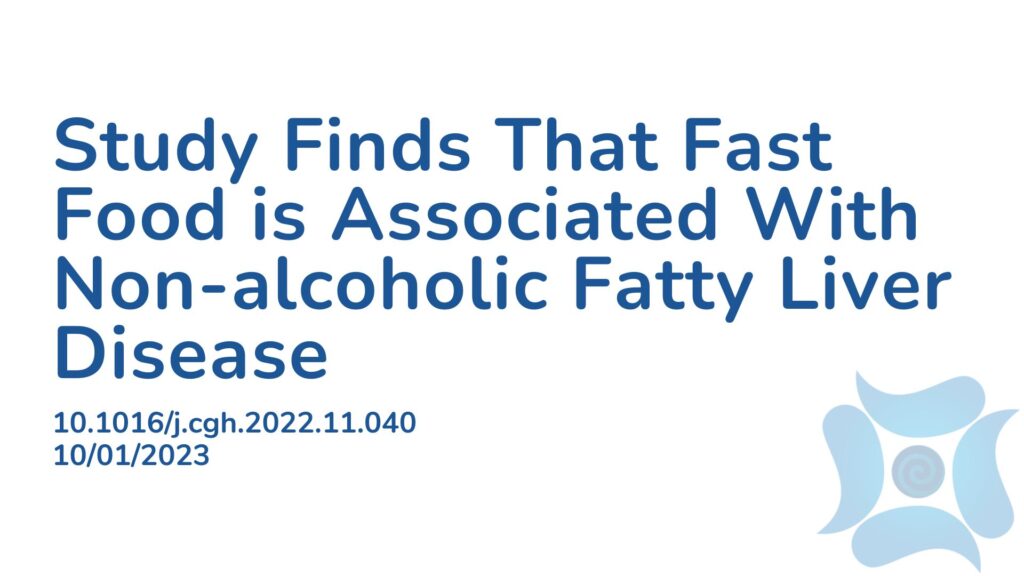Summary:
This study has found that eating fast food is associated with non-alcoholic fatty liver disease (NAFLD), also known as liver steatosis a condition where fat builds up in the liver. NAFLD can be life-threatening and is an increasingly common condition seen globally. The researchers looked at levels of fat in the liver of people with obesity or diabetes, who currently consume 20% or more of their total diet from fast food sources. NAFLD can lead to cirrhosis which is scarring of the liver that can cause liver failure or liver cancer. Given that diet is a modifiable factor and NAFLD is seen in approximately 25-30% of the US population, interventions for NAFLD targeted towards diet and lifestyle need to be prioritised in all healthcare settings.
Abstract:
Fast-food consumption is highly prevalent in the United States (U.S.) and associated with greater risk of diabetes and cardiovascular disease. 1 However, little is known about the impact of fast-food consumption on the risk of nonalcoholic fatty liver disease (NAFLD), which affects over 30% of the U.S. population, or whether the effect of fast food on steatosis is different among persons with metabolic risk factors, including obesity and diabetes. Dietary intake has been hypothesized to be one of the most influential modifiable factors for NAFLD, yet there are major gaps in evidence linking diet with steatosis, particularly among high-risk groups, limiting public health efforts around dietary prevention and risk mitigation strategies to reduce fatty liver. It is crucial to better understand the potential role of fast-food consumption, a prevalent source of caloric intake in the U.S., on liver health outcomes. We analyze the National Health and Nutrition Examination Survey (NHANES) survey 2017–2018 to evaluate the quantitative impacts of fast-food consumption on liver steatosis risk using vibration-controlled transient elastography (VCTE) in a nationally representative sample of persons.
Article Publication Date: 10/01/2023
DOI: 10.1016/j.cgh.2022.11.040



